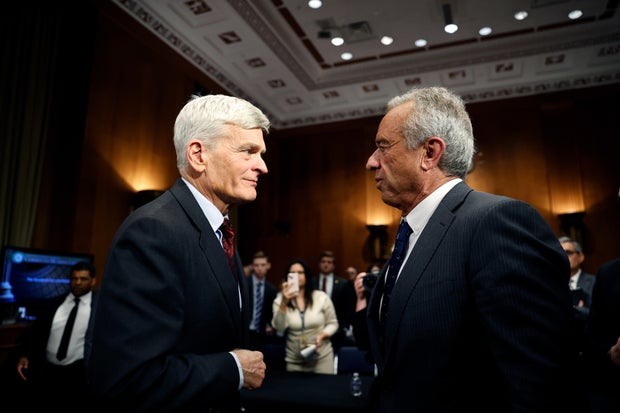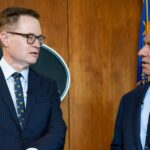In a recent development in Washington D.C., Senator Bill Cassidy, a Republican from Louisiana and the Chairman of the Senate Committee on Health, Education, Labor and Pensions, has raised significant concerns regarding the functionality and integrity of the Centers for Disease Control and Prevention (CDC). Senator Cassidy urged the Department of Health and Human Services (HHS) to indefinitely delay the upcoming meeting of its vaccine advisory committee. This request comes in the wake of a series of high-profile resignations and ongoing leadership disputes within the CDC.
The proposed meeting, scheduled for September 18, was intended to discuss important public health matters including vaccines for COVID-19, Hepatitis B, Respiratory Syncytial Virus (RSV), and the MMRV (measles, mumps, rubella, varicella) combination vaccine. Potential voting on recommendations for these vaccines was also on the agenda. However, Senator Cassidy argues that proceeding with the meeting under the current circumstances could compromise its validity and outcomes. He emphasized that any recommendations emerging from this meeting would be questionable due to what he described as “serious allegations” and the “current turmoil in the CDC leadership.”
Senator Cassidy’s statement highlights a deep rift between certain governmental departments and agencies under the administration of President Trump, particularly pointing to recent attempts to dismiss CDC Director Susan Monarez. Monarez’s removal comes less than a month after her Senate approval, sparking legal pushbacks from her legal team against the administration’s decision.
Moreover, the upheaval within the CDC is not limited to the top echelons. Several other senior officials resigned, citing differences over the administration’s vaccine policies among other issues. These resignations signal a concerning instability within an agency critical to public health management in the United States.
Adding to the complexity, HHS Secretary Robert F. Kennedy Jr., who appeared recently on Fox News, refrained from delving into personnel matters but confirmed issues within the CDC. He alluded to a “deeply embedded malaise” at the agency, stressing the need for robust leadership to align with President Trump’s broader goals.
Earlier this year, in a bold move under Kennedy’s directive, all 17 members of the Advisory Committee for Immunization Practices were dismissed. This committee, composed of independent medical and public health experts, plays a pivotal role in advising on vaccine recommendations for the nation. Kennedy replaced them with eight appointees, a decision that further stirred controversy and skepticism about the motivations behind these changes.
Senator Cassidy had previously expressed reservations about Kennedy’s nomination due to his long-standing skepticism towards vaccines. Despite these concerns, Cassidy later supported Kennedy, swayed by commitments from the administration aimed at fostering a collaborative relationship focusing on public health objectives.
Currently, Cassidy is not only calling for a postponement of the vaccine advisory committee meeting but also advocating for thorough oversight before any future meetings are convened. These events should not proceed without ensuring a credible and scientifically sound process that directly impacts public health, particularly children’s health, according to Cassidy.
Amidst these developments, Senator Bernie Sanders, ranking member of the Senate HELP Committee, has demanded a bipartisan probe into Director Monarez’s firing. Sanders is pushing for a comprehensive hearing involving Secretary Kennedy, Monarez, and the resigned CDC officials to directly address these concerns in an open forum, promoting transparency and accountability.
Additionally, further hearings are scheduled, such as the Senate Finance Committee planning to question Secretary Kennedy regarding President Trump’s healthcare agenda. While this hearing had been arranged prior to the current controversies, it illustrates the ongoing scrutiny of Kennedy’s leadership and the broader administration’s policies.
Calls for Kennedy’s resignation or dismissal have grown, particularly among Democrats, with Senator Patty Murray of Washington starkly criticizing his leadership and its detrimental impact on pivotal health agencies like the CDC. The White House, however, stands by its decisions, with White House press secretary Karoline Leavitt supporting the actions taken against Monarez, emphasizing alignment with the President and Secretary’s vision for national health.
As the scenario unfolds, the dynamics within these health agencies and their leadership continue to attract significant legislative and public scrutiny. The outcomes of the proposed investigations and hearings could profoundly impact public health policy and governance, setting precedents for how such critical agencies operate amidst political and administrative pressures.









